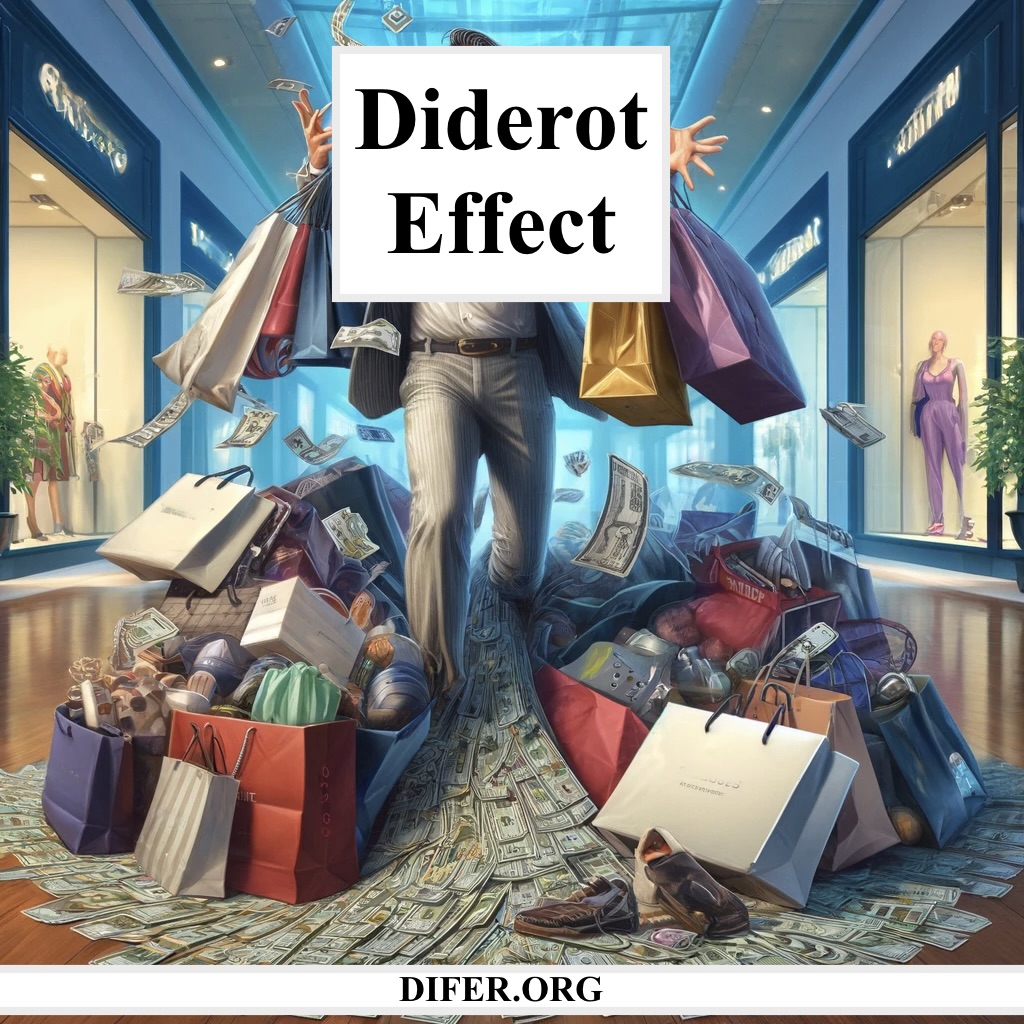The Diderot Effect refers to a phenomenon where the acquisition of a new possession leads to a cascade of additional purchases that are often unnecessary. This concept is named after the French philosopher Denis Diderot, who described his experience of falling into this pattern after receiving an extravagant gift. He noticed that the beautiful new gift made the rest of his possessions seem drab by comparison, compelling him to buy new things to match the elegance of the gift. This led to unintended expenses and replacements, even though the new items were not necessary.
The essence of the Diderot Effect lies in the idea that when we obtain a new possession that is perceived as superior or more desirable than our existing belongings, it can create a sense of dissonance or dissatisfaction with what we already own. This feeling prompts us to seek out other items that complement or match the new possession, resulting in a cycle of consumption.
For example, if someone buys a new high-end smartphone, they might feel compelled to upgrade their accessories, such as a case or headphones, to match the quality of the phone. This might lead to further purchases, such as a new wireless charger, screen protector, or other related items. Over time, this pattern of consumption can result in unnecessary spending and accumulation of possessions.
The Diderot Effect highlights how our possessions can influence our behavior and consumption patterns. It makes people feel the need to maintain a sense of harmony or consistency among their belongings, often leading to overconsumption and increased materialism. Recognizing the Diderot Effect can help individuals become more mindful of their purchasing decisions and break free from the cycle of unnecessary consumption.
Overcoming the Diderot Effect involves recognizing and addressing the cycle of consumption it represents. Here are several strategies that can help break or mitigate this cycle:
- Awareness and Reflection: The first step is to be aware of the Diderot Effect and how it influences your purchasing decisions. Reflect on your motivations for buying new items. Ask yourself if the purchase is necessary or if it’s driven by a desire to maintain a certain image or lifestyle.
- Set Clear Goals: Define what you truly value and set financial or lifestyle goals accordingly. This can help steer your decisions away from unnecessary purchases and keep your focus on what genuinely matters to you.
- Budgeting: Implementing a budget that includes savings and discretionary spending can help control impulsive buying. When you allocate funds for different categories of spending, you can make more mindful decisions about new purchases.
- Decluttering: Regularly decluttering your living space can help you appreciate what you already own and reduce the desire to buy more. It also highlights the cost, both financially and environmentally, of accumulating unnecessary items.
- Quality over Quantity: Investing in fewer, higher-quality items that last longer can reduce the need to constantly replace or upgrade your possessions. This approach encourages thoughtful purchasing and values durability and functionality.
- Mindful Consumption: Practice mindful consumption by asking yourself if each purchase will add value to your life or if it’s merely fulfilling a temporary desire for something new. This can help shift your focus from short-term gratification to long-term satisfaction and well-being.
- Limit Exposure to Temptation: Marketing and social media can significantly influence your desire for new possessions. Limiting exposure to advertisements or social media platforms that trigger the urge to buy can help reduce the impact of external pressures on your spending habits.
- Embrace Minimalism: Consider adopting a minimalist approach to possessions, focusing on what is essential and meaningful. Minimalism doesn’t mean living without luxury or comfort but prioritizing things that serve a purpose and bring joy.
- Community and Support: Sharing goals with friends or family members or joining a community with similar values can provide support and accountability, making it easier to resist impulsive purchases.
- Gratitude: Cultivating gratitude for what you already have can shift your focus from what you lack to what you possess, reducing the drive to acquire more.
Overcoming the Diderot Effect is not about deprivation but about making conscious, deliberate choices that align with your values and goals, leading to a more satisfying and sustainable lifestyle.

DIFER.ORG supports reducing waste






This website is an absolute gem! The content is incredibly well-researched, engaging, and valuable. I particularly enjoyed the strategies which provided unique insights I haven’t found elsewhere. Keep up the amazing work!